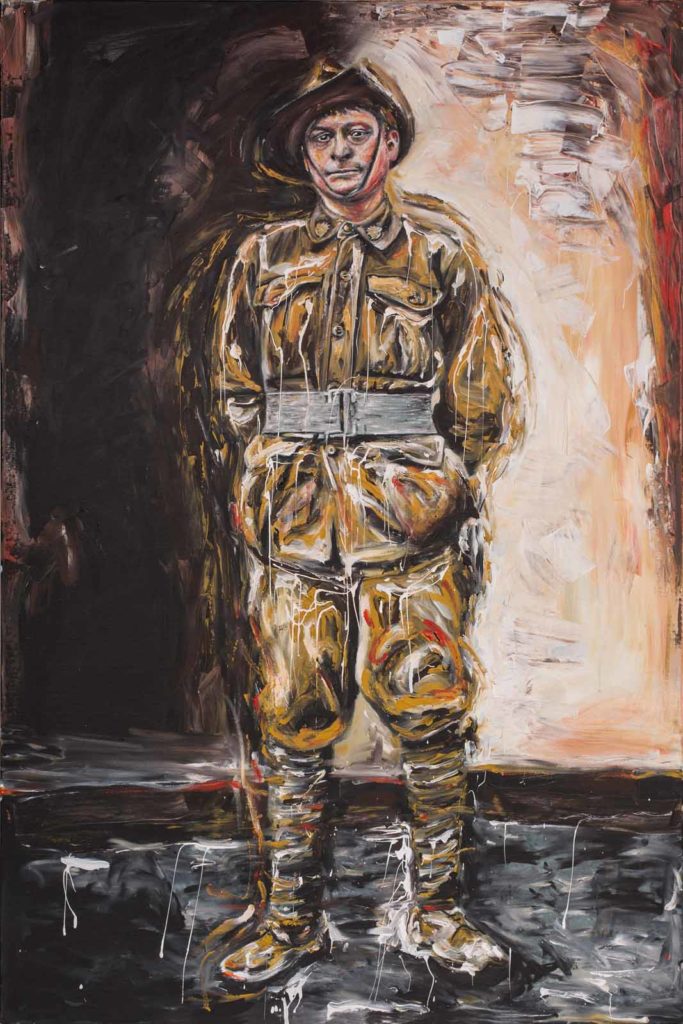Unknown Soldier
TWO FAMOUS QUOTES
‘We must look forward 100, 200, 300 years, to the time when the vast subcontinent of Australia will contain an enormous population. And when that great population will look back through the preceding periods of time to the world-shaking episode of the Great War, and when they will seek out with the most intense care every detail of that struggle; when the movements of every battalion, of every company, will be elaborately unfolded to the gaze of all; when every family will seek to trace some connection with the heroes who landed on the Gallipoli Peninsula, or fought on the Somme, or in the other great battles in France’
– Winston Churchill, 16 December 1918
‘By Jove…Australians. There was no mistaking them. Their slouch hats told one at a glance but without them I should have known. They had a distinctive
type of their own, which marked them out from all the other soldiers of ours along the roads of war…They looked hard, with the hardness of boyhood and
a breeding away from cities or, at least, away from the softer training of our way of life. They had merry eyes (especially for the girls round the stalls), but
resolute clean-cut mouths, and they rode their horses with an easy grace in the saddle, as though born to riding…those clean-shaven, sun-tanned, dustcovered
men, who had just come out of the hell of the Dardanelles and the burning drought of Egyptian sands, looked wonderfully fresh in France. Youth,
keen as steel, with a flash in the eyes, with an utter carelessness of any peril ahead, came riding down the street. They were glad to be there. Everything was
new and good to them…They had none of the discipline imposed on our men by regular traditions. They were gipsy fellows, with none but the gipsy law in
their hearts, intolerant of restraint, with no respect for rank or caste unless it carried strength with it, difficult to handle behind the lines, quick-tempered,
foul-mouthed, primitive men, but lovable, human, generous souls when their bayonets were not red with blood…’
– Philip Gibbs, 1920


